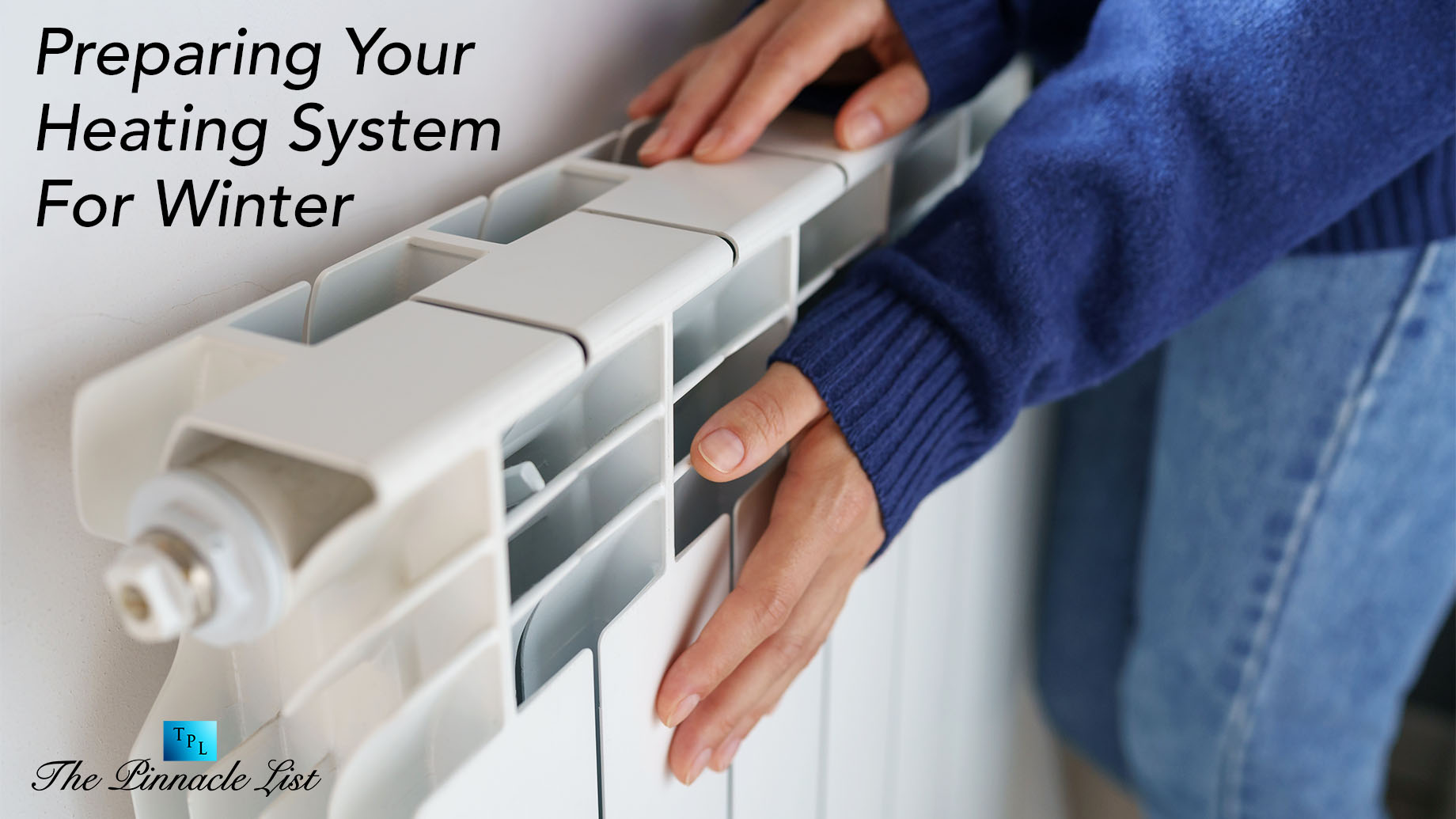
Winterizing your heating system is an essential task that will help prevent emergencies, ensure comfort, and cut costs. Even reliable systems require periodic check-ups before operating at full capacity for an entire winter season. In this guide, we will go over the steps to keep it functioning optimally all winter.
1. Check Your Boiler
Your boiler is at the core of any heating system, so its technical condition requires special consideration. Before making further checks, conduct a visual inspection for cracks, rust, or signs of leakage to ensure its burner and heat exchanger are free from dirt or carbon buildup, which could reduce efficiency. With gas boilers especially, please pay attention to their gas valves and connections for potential leaks. Call a professional plumber for diagnostics; specialists can assess the pressure, tightness, and settings of your boiler system. Regular boiler maintenance will help ensure its efficient running costs and extend its service life.
When it comes to the reliability of your heating or water supply system, it is important to choose an experienced company. Superior Plumbing and Heating of Toronto offers a full range of services for diagnosing, repairing, and maintaining boilers: https://superiorplumbing.ca/toronto/boiler-repair/
The company’s specialists have many years of experience and use modern equipment to solve problems quickly. Turning to professionals, you get quality service with a guarantee for the work performed. Read the article about boiler repair Toronto.
2. Pipe and Radiator
Inspection Pipes and radiators play an essential part in heating efficiency, so their condition should be carefully examined to detect leaks at joints, especially where there may be joints between pipes. Radiators also deserve close examination for corrosion or uneven operation before returning to service. When some radiator sections remain cold despite being turned on, air may have collected in them. To remedy this issue, air vents must be installed to release this trapped air and restore heating efficiency. Failure to take this step significantly reduces effectiveness and should not be overlooked.
3. Verify the Circulation Pump
A circulation pump ensures constant hot water flows to your system. Before winter arrives, ensure it runs without making noise or creating vibrations—these could indicate air locks or mechanical problems and require immediate attention. Checking pump speed and settings regularly is crucial, as excessive energy use due to too high of a speed or too little heating of the system may increase costs significantly. If any malfunctions arise, contact a professional immediately for repairs or replacement services.
4. Clean the System from Scale and Dirt
Over time, sediment, scale, and dirt buildup in heating systems reduce their performance, so it is recommended that pipelines and radiators be flushed using special equipment or chemicals before beginning another heating season. Cleaning will restore heat transfer efficiency, reduce fuel consumption, and avoid boiler overheating. For optimal results, plumbers who possess special cleaning equipment for system deep cleaning should perform this task.
5. Assessing Leaks and Pressure
A properly functioning heating system relies on its tightness. Even the slightest water leak could reduce pressure, impacting efficiency. Before beginning any season, check your system pressure with a gauge; typically, a 1.5-2.0 bar should suffice. If the pressure falls below this mark, add water, but ensure it remains sealed; leakage could indicate damaged pipes or connections requiring immediate attention.
6. Perform a Test Run
Step six in your preparation is testing out your heating system. Start the boiler, turn up all radiators evenly, listen for any noises that indicate air plugs, or detect unusual odors that indicate potential boiler issues.
Test runs are also an opportunity to ensure that pumps, valves, and other system components function optimally. Contact a specialist immediately for diagnosis if any abnormalities arise during this testing phase.
Why Is Checking the Heating System Before Winter Important?
Preparing your heating system for winter can both ensure maximum comfort and save money. An inefficient system can waste fuel, which in turn leads to higher bills, while early detection of any problems will help thwart costly repairs or emergencies in winter when access to technicians may be restricted. Referring to Plumbing Engineer, plumbers know how to properly install any plumbing equipment for safety reasons in the first place.
Consequences of not checking the heating system before winter
Not having your heating system checked before the winter season poses numerous serious consequences, potentially resulting in several severe issues. First of all, even small malfunctions, such as airlocks or loose pipe connections, can compromise the heating system’s effectiveness and cause uneven heating throughout your home. Second, unclean pipes or radiators with sediment and scale cause the boiler to work harder, driving up energy costs and risk of breakdown. Poor maintenance of heating systems can create serious emergencies, including burst pipes or pump failure, necessitating expensive repairs. Furthermore, an unattended heating system may become hazardous to health due to gas or carbon dioxide leaks resulting from potential gas or carbon dioxide leaks. Regular inspection is key to creating stable heating solutions that are economical yet safe.